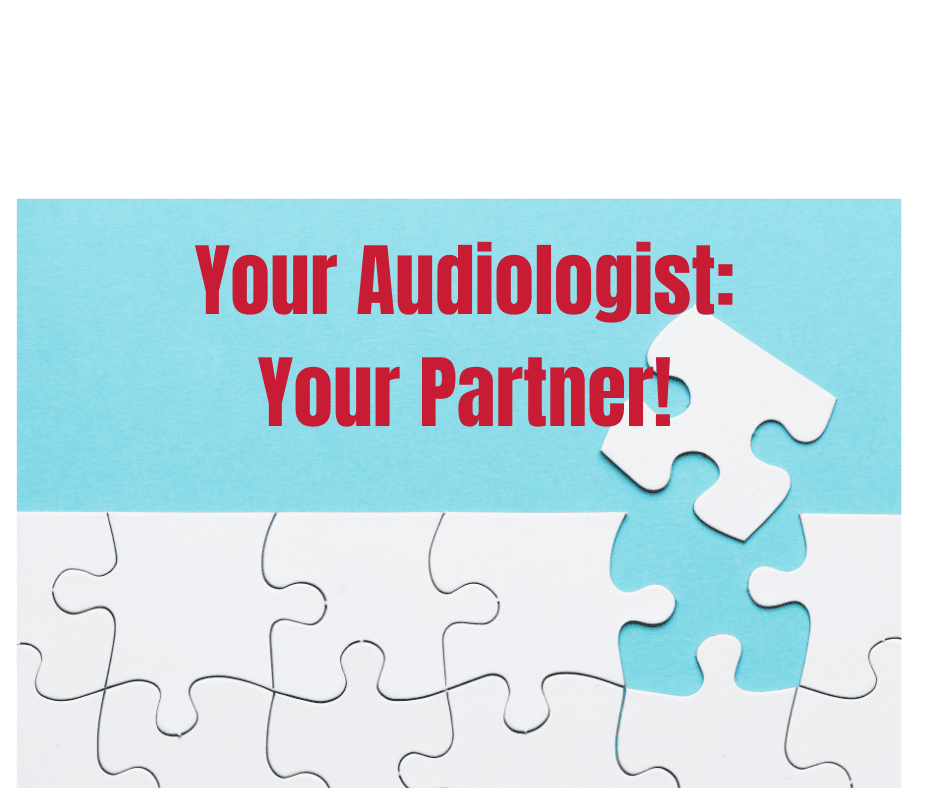Last week I had one of my favorite speaking gigs: talking to audiologists, both those already practicing and those in training to become one.
As a person with congenital hearing loss, I’ve been under the care of hearing care professionals (HCP) of all stripes for my entire life. I don’t think I’ve ever met an audiologist who wasn’t passionate about their work. But I’ve also been under the care of too many HCPs who have embraced the belief that the almighty hearing aid is all that we, the people with hearing loss, need to sail forth to better hearing and communication.
It took me a few decades to figure it out, but while hearing aids are the crucial first step for many of us, they are not the missing piece that completes the hearing loss puzzle. In fact, that puzzle doesn’t exist, because there is no finite solution. Hearing loss is a journey with lots of turns, loops and detours. It’s not a racetrack with a definite start and finish.
Communication is a two-way street. It’s a tango for two or a folk dance for many. Every person with hearing loss has the right to participate but we need to take charge and exercise those rights.
Over the years, through trial and error, I discovered that I needed help to deal better with my hearing loss. My goal shifted from wanting to hear well, which may or may not happen, but to communicate better, which is more achievable with the addition of other strategies – a range of technology including a hearing aid, new attitudes, and a variety of interpersonal skills such as self-advocacy and bluffing less. (That last one is an eternal work in progress!)
And the help I need to learn and embrace these strategies comes from other people, including my hearing healthcare professional, my family and other people with hearing loss.
But it starts with the audiologist. At the start of our hearing loss journey, we need an HCP who will engage us in a collaboration, a partnership, where we each have a role. We need to understand the Big Picture of hearing loss – what it is, what helps, what we can expect and not expect, and the many tips and tricks to improve how we engage with the world.
But we cannot offload or download responsibility for our personal success to others. We have to participate in our own hearing care and take ownership of our communication. It’s our life. We are experts in our own lived experience – and our HCP has the skill and knowledge to help us. It’s a good match if we’re open to it.
The role of the audiologist:
- Paint the Big Picture; help set expectations for both client and their family
- Understand the client’s lifestyle and communication needs
- Hold respect and compassion for the client’s knowledge and emotions
- Encourage a range of communication strategies
- Share information such as peer support resources
- Invite the client’s family to join in the process, if the client is willing
The role of the client:
- Choose a professional whose expertise we trust and respect, who is a good communicator, and who makes us feel comfortable.
- Welcome our family or friends into the process, understanding not only the impact of our hearing loss on them, but also how they can support us
- Be honest about emotions, lifestyle, difficult communication situations
- Embrace new communication strategies and establish and practice these at home.
Adjusting to hearing loss is an emotional journey, one that can be eased by working with a professional who cares about our success in all areas of life. And that’s what I talked about to a room of our partners: audiologists and those in training to become one.








Eloquent…right on point!
Bravo, Gayle!
A mentor to millions of us.
Each day, I read some part of the brilliant book that you co-authored with another mentor to all us who live with hearing loss (Shari Eberts).
I always find some pearls of wisdom on any given page.
And this blog is yet another shining pearl.
Thank you for your humor, your optimism and you wise advocacy that lights our fires!
Thanks again Gael for the good article. This last weekend case in point….I went to a 2 day seminar that was held in the basement of our church. Our church is looped so it works very well in the basement also. The chairs were set up in a big U shape. I asked the director if the mic was going to be used which he replied “no but you can sit up close to the speaker”. He knows I have bad hearing and he knows the area is looped. I complied but struggled most of the seminar because the speaker had his back to me quite often since he was walking around the area! Also when others spoke it was also hard. I need to be more persistent when I am in these venues…your article hits on that area! Thanks again!